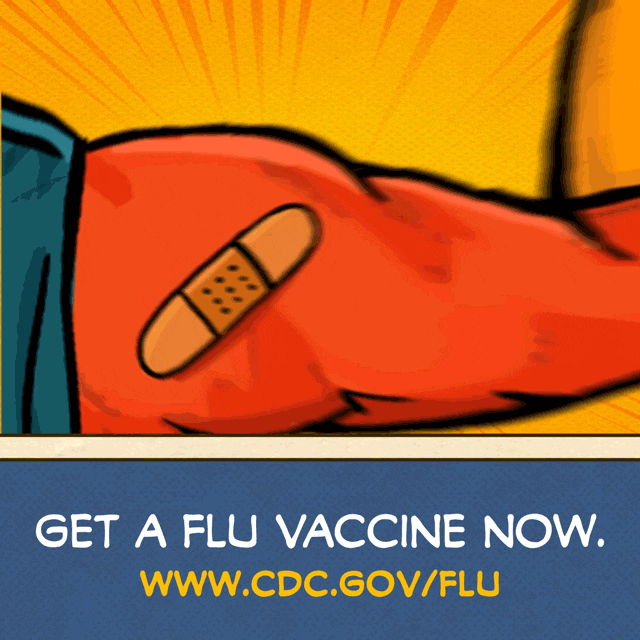Life

Here's How To Prevent The Flu From Becoming Pneumonia, According To An Expert
It's official — this year's flu is an actual public health crisis. As the death toll continues to climb, local governments are urging the public to get vaccinated, while medical experts reports hospitals overflowing with flu cases. Some people wind up hospitalized because flu symptoms can be frightening intense. Still others seek medical help when influenza invites an unpleasant houseguest — like pneumonia — to stay. If you or a loved one has a bad case, you might be wondering how to keep flu from turning into pneumonia. What, if anything, can you do to decrease your risk of confronting this dangerous complication?
Nationwide, this flu season's hospitalizations are the highest in almost a decade, reported The Washington Post, and pneumonia or suscipion of pneumonia is a major driver of emergency room visits. While you can't always control the course of an illness, you can be aware of your risk factors, and take simple, practical daily measures to decrease the severity of your flu.
According to Dr. Suchitra Rao, MD, an infectious disease specialist and Associate Medical Director of Epidemiology at Children's Hospital Colorado, it starts with measures — like the "vampire cough" — that prevent the spread of the flu virus to begin with. "We know that if you can do all those things that we talk about during flu season, like washing your hands and practicing good hand hygiene, trying not to cough onto objects or surfaces, those are definitely things that will help prevent flu from turning into pneumonia," Rao tells Romper.
Beyond that, smokers are more prone to developing pneumonia, because of the damaging effects of tobacco inhalation on the lungs. Rao suggests avoiding smoking altogether — or at least during the winter months and whenever you feel sick. Other populations at risk include pregnant women, whose immune systems are weaker, those with underlying medical conditions, and children under 5. For very young children, and especially those under 2, "it's probably worth getting checked out sooner rather than later," says Rao.
Getting vaccinated can also prevent serious complications, even if you still catch that awful flu. According to the American Association of Microbiology, the vaccine actually decreases the severity of the illness. "We also know that there’s some evidence that antiviral medicine can help, too," Rao explains. In fact, the Centers for Disease Control and Prevention (CDC) noted that if you start antivirals within 48 hours of symptoms, it could minimize your risk of developing pneumonia. For kids under 5, antivirals may even be useful beyond that window.

So what about antibiotics? Shouldn't we all be taking them, just in case the flu leads to something worse? According to Rao, antibiotics aren't a great preventative measure, in part because not all pneumonia is bacterial. If doctors do identify a bacterial pneumonia, antibiotics may be given along with antivirals.
If you already have the flu, preventing a turn for the worse may come down to simple self-care. "Really eating very healthy, resting appropriately, and drinking lots of fluids — whatever we can do to make our immune system nice and strong, we can prevent any kind of secondary complications," says Rao.
OK, for all you parents soldiering through a winter riddled with sickness, I know getting your full eight hours of sleep sounds all but impossible. Since January, I've cared for an ailing toddler, quickly followed by an ailing husband, and a good night's rest isn't something I've had in weeks. (Literally, weeks.) Nevertheless, it's important to prioritize your health whenever you can, even if that just means dropping dehydrating beverages like alcohol and replacing them with healthy snacks and a tall glass of water (no, not that kind). Now is not the time to take on big new projects at work, either — unless, of course, you're an flu specialist like Rao.
This year, the state of Colorado, where Rao practices medicine and conducts research, has seen a 227 percent increase in hospitalizations resulting from the flu, and they're feeling it. "It’s definitely a very busy, busy time of year," Rao observes. Interestingly, the cases of pneumonia Rao and her team are seeing are often related to underlying medical conditions. For that reason, preventing complications may also mean being aware of, and properly managing, issues like chronic lung disease, immune and heart conditions, and neurologic conditions.
One of the scariest things about pneumonia is how quickly it can set in. Especially with young children, Rao suggests that parents have a low threshold for bringing them to a provider. In the meantime, if you or a family member has the flu, it's crucial to keep watch for signs you're really dealing with something new.
"What we typically see, is you get those initial symptoms of cough and fever and chills, and those things are usually caused by the [flu] virus," Rao observes. "But anything four-to-fourteen days after the initial symptoms, that’s when the secondary pneumonia can develop."
Pneumonia might present with chest pain, difficulty breathing, pain with deep breaths, and a more productive cough.